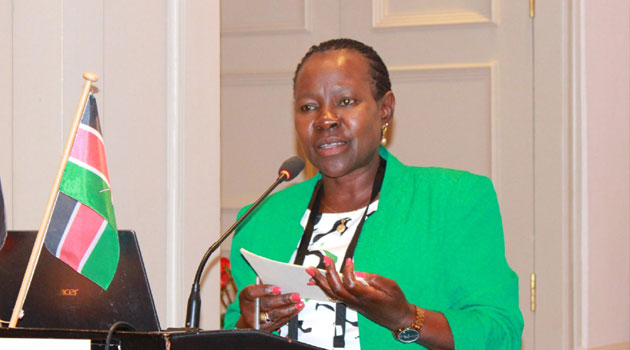President William Ruto’s administration has transformed Kenya’s Technical and Vocational Education and Training (TVET) sector, driving bold reforms that empower youth and stimulate economic growth. Dr. Esther Muoria, the Principal Secretary for TVET, has reaffirmed the government’s commitment to skills development, emphasizing that vocational training now plays a pivotal role in national progress.
Speaking during a televised interview, Dr. Muoria explained that TVET institutions now serve as the foundation of Kenya’s socio-economic transformation. She credited President Ruto for launching an ambitious plan to establish a TVET institution in every constituency. So far, the government has operationalized 240 colleges, while the rest remain under development.
Since September 2023, Kenya has fully embraced Competency-Based Education and Training (CBET), replacing traditional theory-based learning. Dr. Muoria highlighted that this shift ensures graduates enter the job market ready for industry demands, eliminating the need for employer retraining. She cited companies like Toyota Kenya, which previously had to retrain recruits due to skill gaps.
To bridge the gap between education and employment, the government has also introduced a dual training model, similar to Germany’s 50-50 approach, where students divide their time between classroom learning and industry placements. This approach allows graduates to gain hands-on experience and secure employment immediately.
Recognizing the importance of the informal sector, the government has launched the Recognition of Prior Learning (RPL) Policy to certify skills acquired outside formal education. Dr. Muoria announced the creation of an RPL Directorate at Kabete National Polytechnic, which will oversee implementation. She emphasized that many professionals in Jua Kali and MSME sectors have sustained Kenya’s economy without formal certification, and the policy will finally acknowledge their expertise.
Dr. Muoria reported that student enrollment in TVET institutions has more than doubled, rising from 300,000 to over 700,000 under her leadership. Even more impressively, over 10,000 university-eligible students have opted for vocational training, signaling growing trust in technical education.
Encouraging young people to embrace practical skills, she stated, “With a skill, you will not go hungry. You can start your own business or find employment locally, regionally, or internationally.







[3731]Experience the best iwinjili casino online in the Philippines. Secure iwinjili login, quick register, and iwinjili app download for top-rated iwinjili slots and premium gaming experiences. Join iwinjili casino online, the Philippines’ top choice! Secure iwinjili login, fast iwinjili register, and iwinjili app download for premium iwinjili slots and games. visit: iwinjili